Top 5 Health Benefits of Spinach
Spinach is one of the most adaptable leafy greens. Smoothies, chilled spinach salads, steamed and sautéed fresh spinach, stir-fries, and even baked products ... read more...like brownies can benefit from it. Spinach offers several health advantages and may be simply incorporated into your diet. Here are the top health advantages of consuming this potent antioxidant, as well as easy ways to include it in meals and snacks.
-
Vitamin A is abundant in spinach. A cooked cup of spinach is expected to deliver 943 mcg of Vitamin A to the human body. This equates to 105 percent of the RDA for men and 135 percent of the RDA for women. Vitamin C, also known as an antioxidant, aids in the healing of damaged skin and the restoration of its radiance. Spinach is high in vitamin C. Because the body cannot synthesize vitamin C, spinach is a good supply of the mineral. A cup of boiled spinach contains 17.6mg of vitamin C, which is 20% of the RDA for males and 23% of the RDA for women.
Drinking plenty of water is beneficial to both our health and our skin. A cup of cooked spinach contains 164 grams of water or around 5 oz. Iron is an essential component of hemoglobin, a protein that transports oxygen to red blood cells. A cup of cooked spinach contains 6 12 mg of iron, which is around 37% of the RDA for males and 49% of the RDA for women. A cup of boiled spinach contains at least 157mg of magnesium. This amounts to around 37% of the RDA for men and 49% of the RDA for women. Magnesium is necessary because of its ability to swiftly heal skin wounds and infections. Other nutrients found in Spinach are Soluble and insoluble fiber, carbohydrates, sugar, sodium, fatty acids, amino acids, calcium, and other vitamins and minerals.
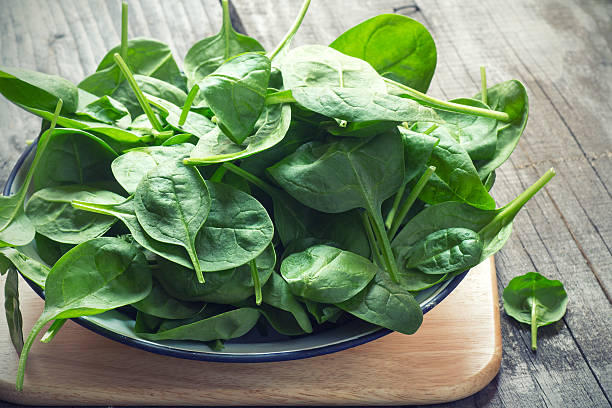
High in Nutrients 
High in Nutrients -
Spinach contains naturally occurring nitrates, which open up blood arteries to enhance blood flow and reduce the burden on the heart. In one tiny research published in The Journal of Nutrition, 11 men and seven women drank four different nitrate-rich beverages, one of which was a spinach beverage.
After consuming all four beverages, researchers discovered that blood nitrate levels rose. Blood pressure was reduced by the spinach drink, as well as those made from beetroot juice and rocket salad (another leafy green). Five hours after consuming the spinach and rocket beverages, diastolic blood pressure remained lower. (The lower number on the blood pressure reading, diastolic, represents the amount of pressure in your arteries between beats.)
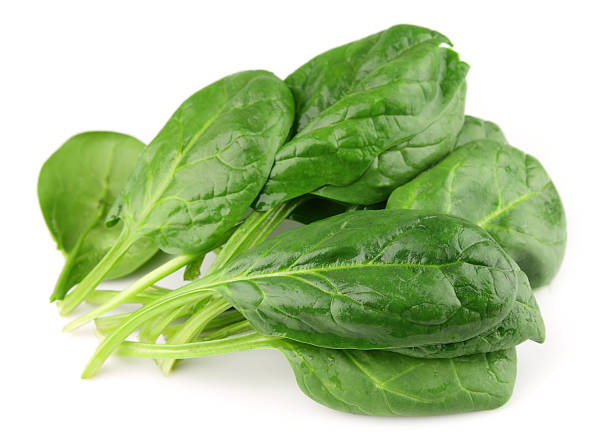
Help Manage Blood Pressure 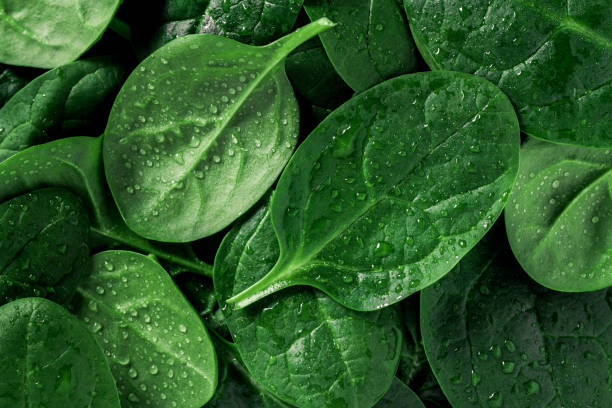
Help Manage Blood Pressure -
One of the antioxidants found in spinach, lutein, has been demonstrated to lower the risk of age-related macular degeneration (AMD), an eye illness that can obscure the clear, central vision needed for tasks like reading and driving. AMD is the major cause of visual loss in persons over the age of 50. Because there is presently no cure or therapy for the illness, prevention is essential. Lutein is abundant in raw spinach. Lutein is a carotenoid that has been shown to preserve your vision by blocking the visible blue light. It guards against cataracts and macular degeneration. Spinach also contains vitamin A, which aids in the formation of healthy mucous membranes, which are required for optimal vision.
Researchers investigated the eyes of 11 healthy nonsmokers who ingested 75 grams of frozen spinach containing 10 mg of lutein daily for two months in one Japanese study. Consumption of lutein-rich spinach enhanced blood lutein levels as well as macular pigment optical density measurements (MPOD). This is significant because macular pigment protects the eyes by acting as internal sunglasses, and low or decreasing MPOD is a risk factor for AMD. According to this study, spinach may help reduce the risk of AMD.
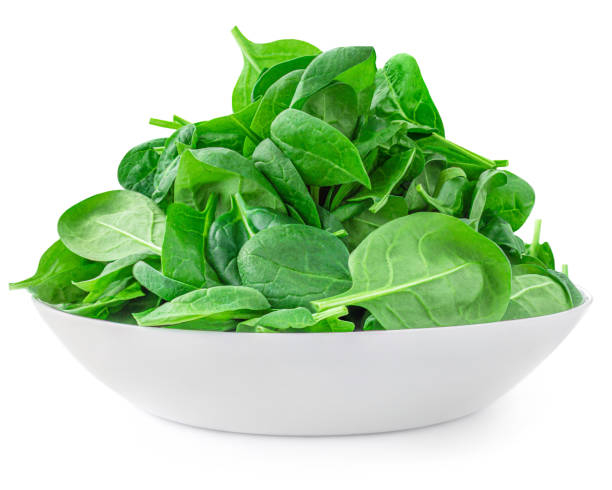
Protects Eyes Health 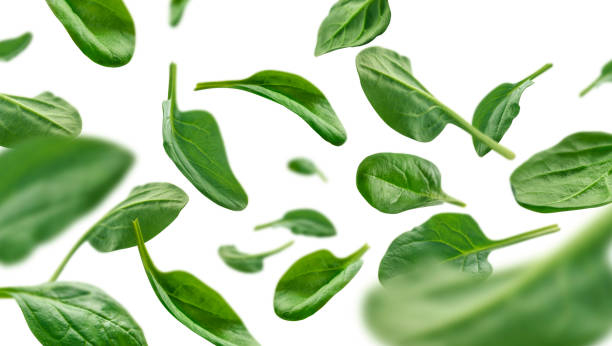
Protects Eyes Health -
Spinach's anti-inflammatory properties make it a strong contender for brain protection. For approximately five years, researchers studied the dietary habits and cognitive capacities of over 950 elderly persons in one study. They discovered a substantial reduction in the rate of cognitive loss among individuals who ingested more green leafy vegetables. According to the findings, persons who had one to two servings of leafy greens daily had the cognitive ability of someone 11 years younger than those who did not consume any leafy greens.
Eating spinach is good for your brain health since it contains antioxidants such as vitamin A, lutein, and carotene. Green leafy foods, such as spinach, are also known to delay cognitive loss. In a 2018 research, scientists examined individuals' nutritional consumption and cognitive ability over the age of 58. They discovered a substantial reduction in the rate of cognitive deterioration in those who ate one serving of leafy green vegetables like spinach on a daily basis.
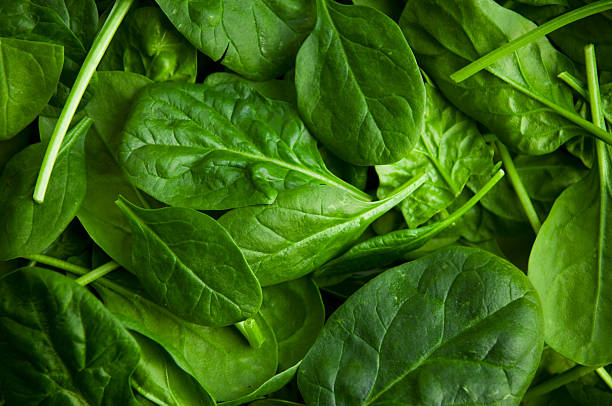
Support Brain Health 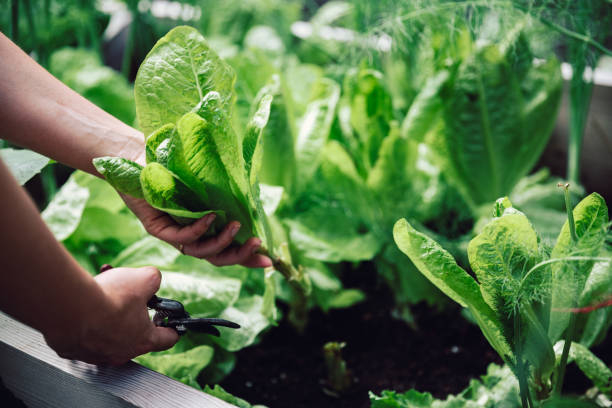
Support Brain Health -
Spinach is not only helpful for strong muscles, but it is also important for bone health since it is high in vitamin K. One cup contains 181 percent of the recommended daily requirement for this vitamin, which also helps to avoid an excess of osteoclasts, which are bone-destroying cells. It also increases the formation of osteocalcin, a vital protein for bone health, and includes crucial minerals such as calcium and magnesium.
Spinach is a good source of vitamin A, which promotes healthier skin by allowing improved moisture retention inside the epidermis, combating psoriasis, acne, and wrinkles. Just one cup has 337 percent of the daily requirement for this vitamin. Its benefits on skin are genuinely amazing.

Support Bones Health and Skin Health 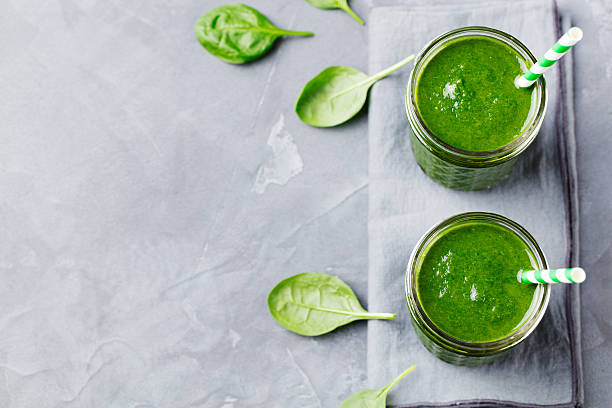
Support Bones Health and Skin Health


























